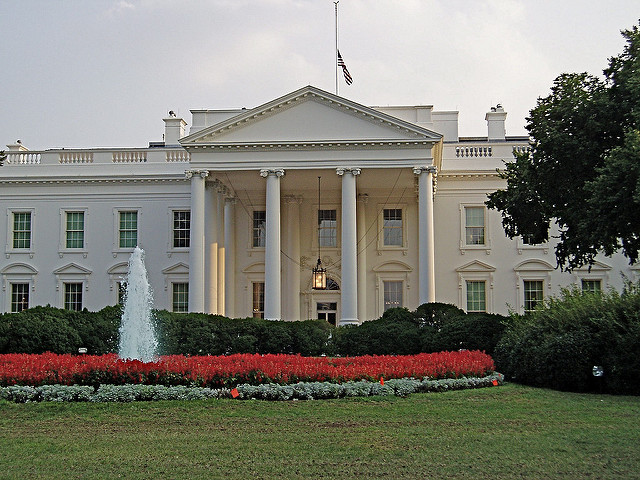
Perhaps the West’s greatest contribution to politics is the concept of contested and limited governance—from Greek and Roman republicanism, which balanced the elites and the masses, through to the parliaments of the British Westminster systems and the veto players of America.
While divided governments are sometimes confused or unable to quickly assist parts of the community, supporters of this approach argue that such limitations are necessary because human nature is fallible. Even the best among us has few talents and sparse knowledge of how society truly works.
Yet, when it comes to thinking about how to govern the world, the West has seemingly abandoned that insight. Many today who most strongly self-identify with defending the West often argue that we need even stronger global leadership centralised in the hands of just one person: the US president.
The obvious flaws of that approach are starkly revealed by Donald J. Trump. As Chris Uhlmann eloquently put it last month, Trump has hit fast-forward on US decline and damaged the very foundations of the system he claims to hold dear.
However, Trump shouldn’t be seen as a freak or an aberration. Rather, the exception has been the surprising capacity of his predecessors to sustain US leadership thus far. Governments without clear and strong checks and balances will go out of control, harming either those under them or themselves. In forgetting that wisdom, the West is the author of part of its own suffering.
It must be remembered, for all that we talk about ‘the world America made’ post-1945, Western leaders back then took a much more jaundiced and cautious approach to global governance than many now pine for.
Franklin Delano Roosevelt—not a man inclined to respect limited government at home—saw the global environment as too much for any state to dictate alone. The United Nations was his answer: a system that gave other great states an explicit veto over US power to make war.
George Keenan, as I’ve previously written, also wanted a less ambitious approach for the US. He worried that problems of capacity, knowledge and culture would ultimately undermine American leadership and in turn harm the US.
Over time, in an unplanned manner and partly in response to the wishes of its allies, US ambitions and the demands on Washington expanded. Some US presidents tried to resist. Dwight Eisenhower was often critical of Harry Truman’s global commitments. Richard Nixon declared that US allies would have to do more, while Bill Clinton and George W. Bush (at least pre-9/11) rejected the idea of the US as nation builder.
Yet still US involvement grew. Barack Obama and Hillary Clinton promised that the US would be the leading power in the Pacific for the entire 21st century. About the only criticism heard in Australia and Asia was that perhaps that wasn’t ambitious enough. The US was only maintaining several bases across the region, housing 60% of its fleet and 100,000 troops. ‘Couldn’t you do more?’ well-meaning critics asked.
The debate from 2011 to 2016 was thus not about whether the US posture was right or wrong, but about whether it was insufficiently ambitious. It was easy to persuade ourselves that a leader as capable and cool as Obama knew what he was doing. It was just a question of getting him to embrace the rightful US position of global leadership.
Trump, however, shows the foolishness of that approach. The ‘pivot’ or ‘deep engagement’ approach could never be sustained because governance on that scale can never be sustained. Too many wanted to believe it could be otherwise under Clinton, Bush and Obama, but we were fooling ourselves then. If we assume that it can be restored post-Trump, we’ll continue to fool ourselves.
There are, of course, vast differences between governing within a society and governing across societies. But, if anything, those differences make the difficulty, complexity and shortfalls of big government even starker. Yet in our hubris we in the West ignored those concerns, and for much of the 21st century we’ve paid the price.
Nor does the fault solely lie with the Americans. Time and again, US allies have encouraged Washington to accept a greater burden, to reject limits and to stay engaged across the world on our behalf. Allies have shown little concern for the cost and pressure their wishes were imposing on the American heartland.
I remain confident that new approaches can be found to establish a US role in the world order that helps protect Western ideas and interests. But that begins by abandoning notions of US primacy and deep engagement across the globe. And it involves a return to the original wisdom of the West: seeking not to dominate or be dominated but using checks and balances along with laws and institutions to carve out a stable and enduring new foundation.

